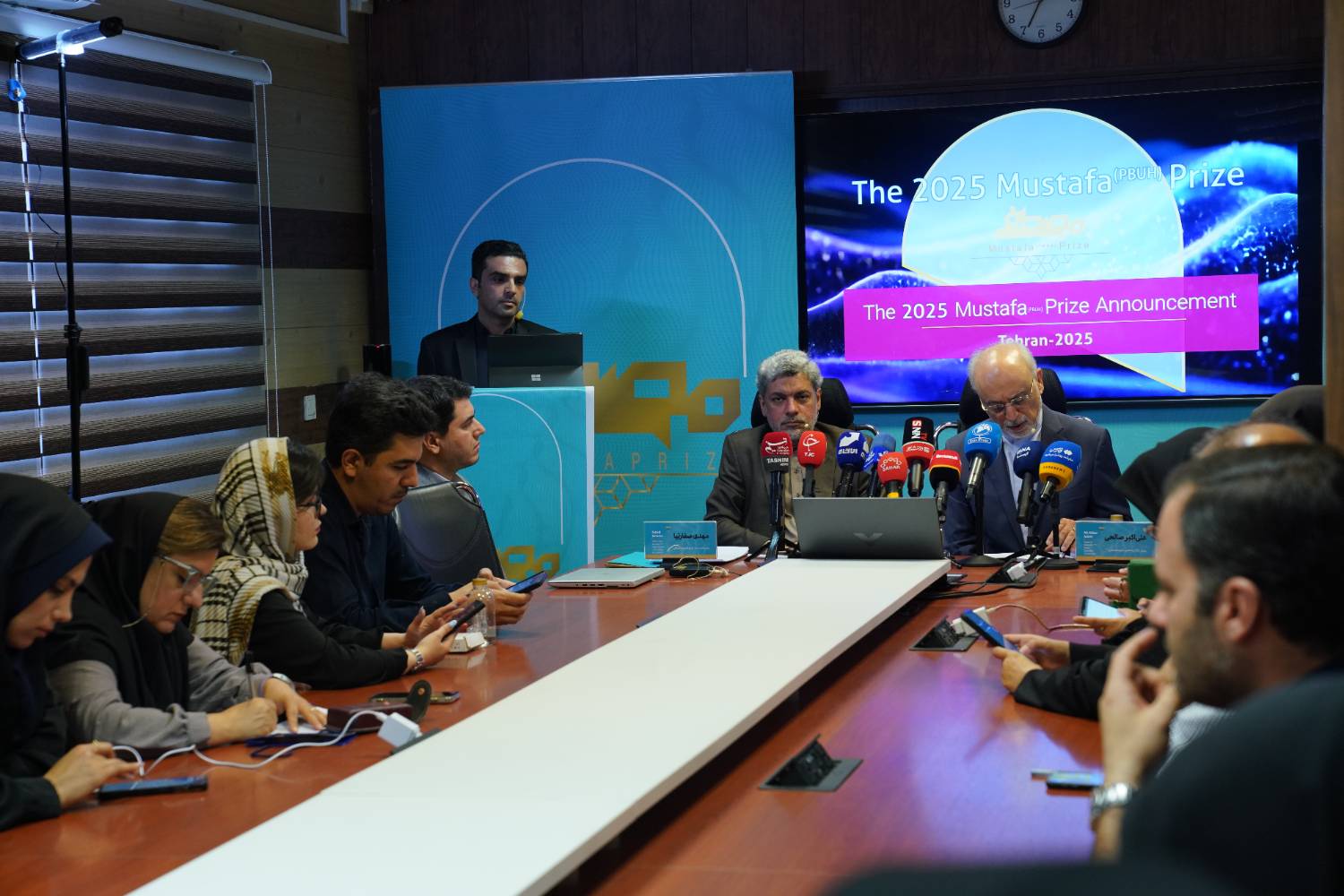Ali Akbar Salehi: Three scientists from Iran, India, and Turkey selected as the Laureates of 6th Mustafa(pbuh) Prize


The Chair of the Mustafa(pbuh) Prize Scientific Committee introduced the laureates of the 6th edition of the prize, stating that Mehmet Toner from Turkey was selected in the field of Life and Medical Science and Technology, Vahab Mirrokni from Iran in the field of Communications and Information Technology, and Mohammad Nazeeruddin from India in the field of Basic and Engineering Sciences.
MSTF Media reports:
Today at the press conference for the 6th Mustafa(pbuh) Prize, Dr. Ali Akbar Salehi stated that the prize is granted in two categories: scientists residing in Islamic countries and those residing outside Islamic countries.
Salehi added that in the initial evaluation for the field of Basic and Engineering Sciences, 1,688 scientists residing in Islamic countries and 2,458 scientists residing outside Islamic countries were reviewed. In the field of Life and Medical Science and Technology, 290 scientists residing in Islamic countries and 280 scientists residing outside Islamic countries were reviewed, ultimately resulting in the selection of three laureates.
The 6th Mustafa(pbuh) Laureates
According to Salehi, Mehmet Toner, born in 1958 in Istanbul, Turkey, is the laureate in the field of Life and Medical Science and Technology for his work on developing microfluidic technology for the rapid isolation of tumor cells to enable faster disease diagnosis.
Vahab Mirrokni, born in 1979 in Iran, is another laureate in the field of Information and Communication Technology for his work on artificial intelligence algorithms. Mohammad Nazeeruddin, born in 1957 in India, who played a significant role in the development of clean energy also received the Mustafa(pbuh) Prize for his contributions to solar cell technology, including dye-sensitized and perovskite cells.
He also announced that the Young Scientists Medal award ceremony will take place on September 6 at the Academy of Sciences as part of the Mustafa(pbuh) Prize Week programs, adding that the recipients of this medal will be introduced and honored during the ceremony.
A Look at the History of the Mustafa(pbuh) Prize
Referring to the history of the Mustafa(pbuh) Prize, Salehi stated that its statute was approved in 2012 by the Supreme Council of the Cultural Revolution, and the prize was officially launched in 2015. The first ceremony was held that same year, and now a decade has passed since the establishment of the prize.
The former president of Sharif University of Technology, referring to the funding of the prize, stated: “According to the statute, the prize’s funds should not come from the government; instead, its expenses are covered by companies and endowments from various individuals.”
According to Salehi, the prize has so far been awarded to 19 scientists: 17 male and 2 female laureates from Pakistan, Iran, Turkey, Malaysia, Singapore, Bangladesh, India, Lebanon, and Jordan.
Salehi added that the Mustafa(pbuh) Prize Week will be held from September 6 to 10, coinciding with the Islamic Unity Week. He noted that this year’s edition has a unique feature: two previous laureates—Ugur Sahin (third edition, 2019) and Omid Farokhzad (fifth edition, 2023)—donated their awards to establish the Young Scientists Medal. The first ceremony for this medal will take place on Saturday, September 6, during which the winners will be introduced. Each recipient will receive a certificate of recognition as well as a cash prize of $10,000.
He reminded that the Mustafa(pbuh) Prize provides a suitable platform for the exchange of knowledge and experiences among scientists from Islamic countries. It has also enabled researchers to become better acquainted with one another and to engage in meaningful collaborations.
According to Salehi, the laureates of this prize are selected carefully and without bias; this feature has led to the prize’s recognition in international forums.
He also mentioned ongoing meetings with other countries to hold the prize ceremonies in the capitals of other Islamic nations.